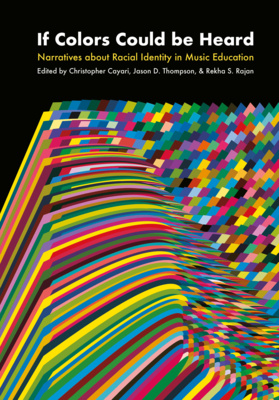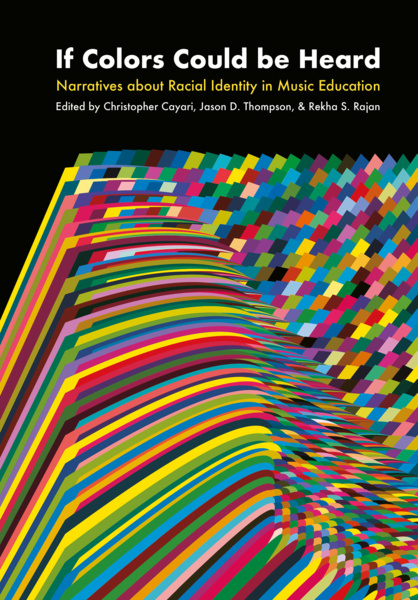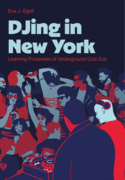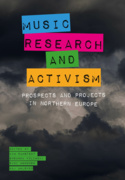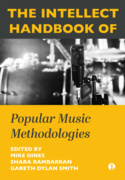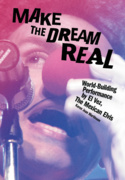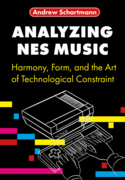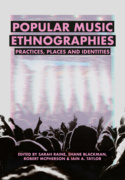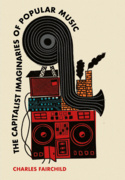If Colors Could be Heard (Book)
Narratives about Racial Identity in Music Education
A groundbreaking collection of first-hand accounts by music educators, artists, activists, and students from the Global Majority. Deeply personal narratives explore how race and ethnicity shape experiences in music learning, making, and teaching and paint a complex and vivid portrait of music education in the United States. 4 b&w illus.
Edition
If Colors Could Be Heard: Narratives About Racial Identity in Music Education is a platform of, by, and for People of Color who are music educators, artists, activists, and students. For this book, we asked authors to consider their race and ethnicity as an intimate and essential part of their music learning, making, and teaching.
The narratives in this collection include tales of being a music student, stories of growing up and finding one’s place in musical worlds, and accounts of teaching students about race, ethnicity, culture, and identity. The chapters in this book are not research studies unless explicitly stated by the author.
Instead, the chapters in tandem represent a stunning mosaic with shades of melanated skin that will serve as a scholarly picture that represents a portion of music education in the United States. Here, you will find self-told stories by people from the Global Majority—a term used to describe Black, African, Asian, Brown, Latin, Dual-heritage, and Indigenous people.
Christopher Cayari is an associate professor of music at Purdue University West Lafayette-Indianapolis, Indiana, USA. Their research interests include popular music, musical theater, race & ethnicity, gender & sexuality, and identity scholarship.
Jason D. Thompson is an an inaugural faculty member at the nation’s first Black Honors College at California State University, Sacramento, USA. His research interests include socially engaged arts practices, music participation as civic engagement, and the ways culture shapes musical experiences.
Rekha S. Rajan is an award-winning classically trained singer who has performed in musicals, operas and operettas across the U.S. Her bestselling children's literature books encourage young readers to explore the world around them through the arts.
Introduction: Painting Wondrous Tunes with Stories by People of Color
Christopher Cayari, Jason D. Thompson, and Rekha S. Rajan
Section I: Intersectionality
Orientation I: Intersectionality and Music Education: Why Identity Matters, Especially for People of Color
Christopher Cayari
1. "From minor to Major feelings, I am more than just Stop Asian Hate” 20
Alice Tsui 徐晓兰
2. In Her Voice: (Re)Visioning Race and Gender in the Music Classroom through the Lens of Black Feminist Pedagogy
Paula Grissom Broughton
3. Coming Out as Asian: Multiplying Identity and Intersectionality
Christopher Cayari
4. Self-Made?: Representation, Tokenism, and Finding Autonomy as an Educator
Marcus Moone
5. The Hip-Hop Therapeutic Education of a Single Mother
Terriee Pope
Section II: Forging New Pathways
Orientation II: Forging Cultural Pathways in Music Learning, Making, and Teaching
Jason D. Thompson and Rekha S. Rajan
6. Searching Somewhere Over the Rainbow for a Home in Choral Music Education
Dr. Kiernan M. Steiner
7. Teaching Music in Tkaronto: The Relationship Between Indigeneity and Place of Practice
Joyce Jing Yee Yip and Lee Cheng
8. My Journey and My Music: Breaking the Hegemony of the Music Classroom in Hong Kong
Chi Ying Lam
9. inVISIBLE: A Journey to (re)claim, (re)embrace, and (re)settle
Shuk-Ki Wong
10. Between the Piano and the Gayageum: From Reversal to Empowerment
Sangmi Kang (강상미)
Section III: Epiphanies
Orientation III: Epiphanies: How Reflection and Realization Influence Our Musical Experiences
Christopher Cayari
11. SPOTLIGHT
Rekha S. Rajan
12: Giving Myself Permission to be a Musician
Tina Huynh
13: “Just look at Anthony!”: Searching for identity, teaching music
Anthony Cao
14: Ni de aquí ni de allá: The In-Betweenness of AfroLatinidad
Marjoris Regus
15: Silent No More: A Vietnamese American Adoptee Speaks About Music Education And Who I Wronged
Kính T. Vũ
Section IV: Triumph and Excellence
Orientation IV: Triumph and Excellence
Jason D. Thompson
17: Through the Looking Glass: An Asian American Music Educator’s Counter-Story
Mindy H. Park
18: Remixing the “Good News”: Using Music to Sustain Faith
Latasha Thomas-Durrell
19: Hitting the Music Educational Jackpot: Directing the Marching Band at a Historic Las Vegas School
Alfonzo V. Kimbrough
Section V: Reimagining Music Education
Orientation V: Reimagining Music Education: Challenges, Changes and Triumphs
Rekha S. Rajan
20: The Diversity Within: An Intersectional Challenge/Opportunity
Darrin Thornton
21: “Elite” Vocal Music Education: Where Perceived Liberalism Doesn’t Cut It
Taylor Masamitsu
22: The Gospel of Musical Inclusion
Jason D. Thompson
23: Musicking With the Other 80%
Alberto Vargas
24: I, Too, Wear The Mask
Quinton D. Parker
25: “I Can See Clearly Now:” Confronting Stereotypes and Assumptions about Urban Music Education
G. Preston Wilson
Epilogue: Carrying the Fire!! of a New Music Education: Devoted to Musicians of the Global Majority
Christopher Cayari
Index

